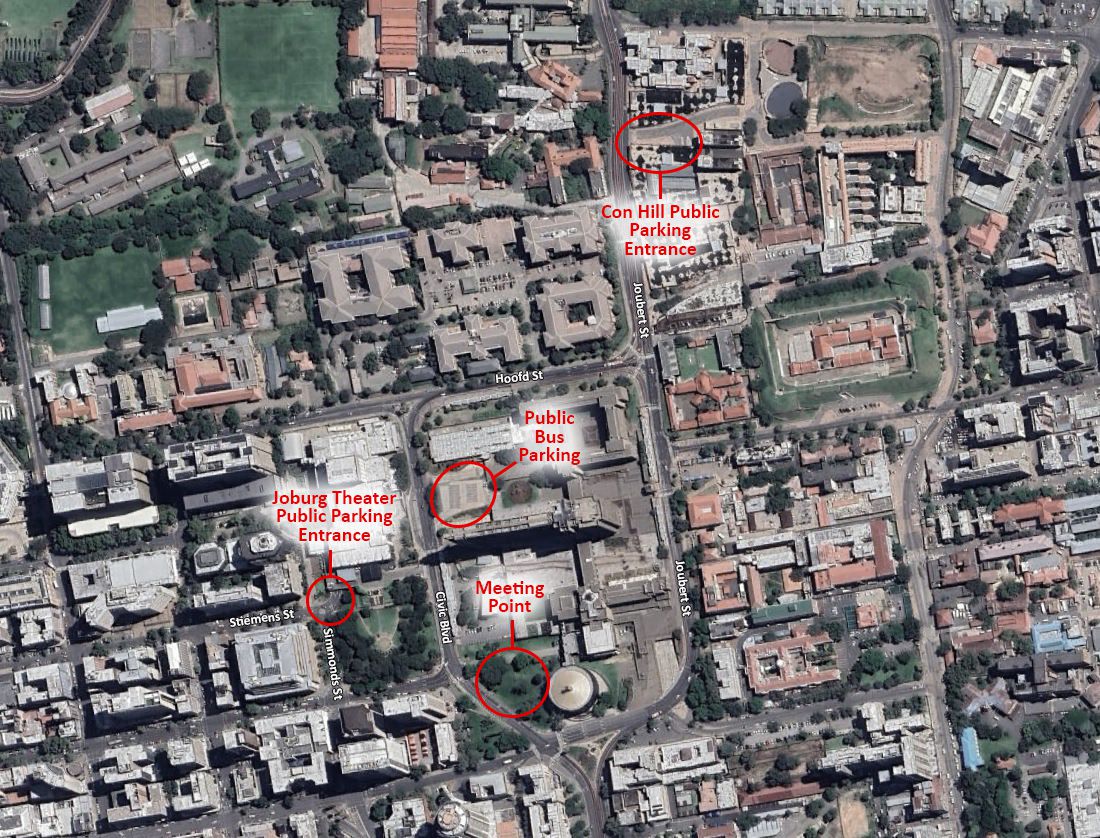Safe Protesting in Johannesburg: A Guide by OUTA
Welcome to OUTA’s guide on safe protesting in Johannesburg. As we exercise our democratic rights, it's essential to prioritize our safety and the safety of others. This guide provides important information and practical tips to ensure a peaceful and effective protest.
What does the Constitution say about protests?
Section 17 of the Constitution says that every person has the right to meet publicly with others, through assembly, demonstrations, pickets, or petitions, to express their views on any matter, as long as such meetings are peaceful.
What is the Regulation of Gatherings Act, 1993?
The Regulation of Gatherings Act, 205 of 1993, is a guide for protests of more than 15 people in public spaces. It sets out the rules for public gatherings ad demonstrations.
It defines demonstrations as a meeting of one or more people, but not exceeding 15 people.
Section 7 of the Act prohibits all demonstrations and protests in a building with a courtroom, or open space that is within a 100-metre radius of such a building, between Monday and Friday (except on weekends and public holidays, unless permission is granted by the district magistrate.
What is a public space?
It is any place generally accessible to people, which includes any street, park, public square, beaches, and steps or grounds of a building or other similar space.
Notice to Protest
A protest of more than 15 people requires the convenor to give notification to the responsible officer, no later than 7 days before the date of your planned protest. If notice is only given 48 hours before the protest, the officer has the right to prohibit the gathering. Any gathering of more than 15 people that happens without a notice being given, is illegal.
A notice should contain the following information:
• Details of the convenor
• Name of the organisation
• Purpose of the gathering
• Time, durations and the date of the gathering
• Place where the gathering is to be held
• Number of people expected
What are the rights and responsibilities of protestors?
A peaceful protest, also known as nonviolent resistance or nonviolent action, is the act of expressing disapproval through a statement or action without the use of violence but may include acts of civil disobedience. OUTA is a civil society organisation that promotes the rights of citizens such as the right to protest, while balancing that with responsibilities such as to follow procedure and act with non-violent intent.
| Every protestor has the right to |
Every protestor is expected to
|
|
o Freedom of religion, belief and opinion. o Freedom of expression. o Freedom to assemble, demonstrate, picket or petition. |
o Follow the law regarding weapons. o Follow the instructions of marshalls (who should be present at any protest). o Refrain from hate speech; either through banners, placards, speech, or singing. o Refrain from acting violently or cause any violence. o May not wear a disguise or mask which hides their identity. o May not wear any clothes that resemble the uniform of security forces, including the police and Defence Force. o May not coerce people to join in a protest. o Though a demonstration of less than 15 people does not require a notice, the Regulation of Gatherings Act must still be followed. |
During the protest it is important to:
Stay Peaceful: Avoid any actions that could be seen as aggressive or confrontational. Do not engage in vandalism or violence.
Follow Instructions: Listen to the organizers and follow their directions. Be aware of and respect the instructions from law enforcement.
Stay Together: Move with the crowd and avoid getting isolated. Look out for fellow protestors.
What is a convenor?
A convenor is the person calling for the public gathering.
The role of the SAPS during protests or demonstrations:
For gatherings, police may:
• Notify the convenor if they believe that they cannot provide adequate protection to protestors.
• Prevent the protest from moving to a different location not mentioned in the notice and stop the protest if it does not follow the Regulation of Gatherings Act.
• Reprimand a person or group of people interfering with the demonstration by either asking them to stop or keeping them a distance away from the gathering.
• Arrest anyone who commits any offence during the gathering.
Interacting with Law Enforcement
• Be Polite and Respectful: Remain calm and courteous when interacting with police officers. Do not argue or provoke them.
• Know Your Rights: You have the right to ask if you are being detained or if you are free to go. If detained, you have the right to know the reason.
• Avoid Confrontation: If tensions rise, move to a safer area. Do not resist arrest, as this can lead to further legal complications.
Protesting is a powerful way to make our voices heard and advocate for change. By following these guidelines, we can ensure our demonstrations are safe, effective, and respectful. Thank you for standing with OUTA and the citizens of Johannesburg in our fight for better governance.
More information and resources
Visit JoburgCAN's website here
Download Right to Know's protest guide here
Check our map for the CoJ protest parking here